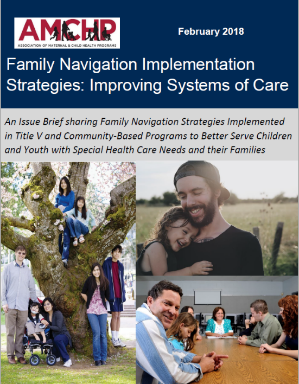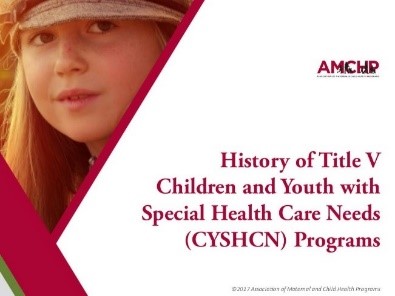Updates from the State Public Health Autism Resource Center
April 19, 2018
|
|
On the Horizon for State Grantees
As mentioned in the previous Developments issue, SPHARC, in partnership with HRSA, is continuing to support the new Autism Community of Learners state grantee cohort as they continue work in Year 2 of the grant cycle. Grantees include:
- Delaware
- Rhode Island
- Washington
- Wisconsin
This cohort has continued participating in monthly technical assistance calls, and through these calls, there has been a lot of discussion around grantee needs for more support and guidance around the Telehealth/education piece of their work. The 2018 Peer-to-Peer Exchange will be held in mid-April in Spokane, WA with a focus on creating connections for children and their families, self-advocates, and providers through Telehealth services. The meeting will feature the Washington State Department of Health team and their partners. During this meeting, participants will learn how the WA team (and others) have collaborated with different partners, addressed challenges around serving culturally and linguistically diverse families, and establishing buy-in to effectively provide Telehealth services in their communities. Stay tuned for the December 2018 Developments issue for our lessons learned from the meeting!
AMCHP's State Public Health Autism Resource Center (SPHARC) has released several new resources designed to aid and assist Autism and other Developmental Disabilities (ASD/DD) grantees.
![]() Issue Brief: Family Navigation Implementation Strategies
Issue Brief: Family Navigation Implementation Strategies
The Association of Maternal & Child Health Programs (AMCHP) is happy to share a new issue brief called "Family Navigation Implementation Strategies: Improving Systems of Care." This issue brief delves into Title V and community-based program strategies of family navigation that aim to better serve CYSHCN. It can not only be used as a tool to inform public health professionals, partners, and stakeholders of different family navigation strategies that could be applied in communities - it can also be used as a mechanism to connect with Title V programs highlighted for their work specific to family navigation activities. Download the full issue brief here.
Title V Data Integration Toolkit! Your Guide to Integrating Early Childhood Data
The Title V Data Integration toolkit is a collection of resources informed by stakeholders that aims to assist states as they integrate Title V data into Early Childhood Integrated Data Systems (ECIDS). The toolkit consists of three types of resources:
- Title V Data Integration Tip Sheets: one-pagers that offer tips, key considerations, and resources around the identified topic area;
- Title V Data Integration Use Cases: Visual examples of how to present information around a key question or priority to an ECIDS in order to receive appropriate data that can inform decision-making; and
- State Examples: Examples of states that have integrated or are effectively sharing public health data leading to valuable insight into the experiences of children and their families.
See for yourself how this new toolkit can aid your data integration efforts! Access the full toolkit here.
AMCHP just closed out their webinar/working-session series on this new tool. See below for topics and recording links for all 3 sessions.
- To view the recording for part 1, "Introducing the Title V Data Integration Toolkit" visit: http://amchp.adobeconnect.com/pxkmjtj9vqau/
- To view the recording for part 2, "Title V Data Integration Toolkit: Examining and Applying the Use Cases" visit: http://amchp.adobeconnect.com/p7ygbe1nfgdq/
- To view the recording for part 3, "Title V Data Integration Toolkit: Getting Started with the Data Integration Process" visit: https://amchp.adobeconnect.com/pdb7jexwm732/
New AMCHP Learning Module:
History of Title V Children and Youth with Special Health Care Needs Programs AMCHP recently released a new learning module entitled the "History of Title V Children and Youth with Special Health Care Needs Programs." This interactive module aims to inform Title V leaders, health professionals, students, and other stakeholders about the evolution of Title V Children and Youth with Special Health Care Needs (CYSHCN) programs and the policies and efforts that helped shape where Title V CYSHCN programs are today. This tool may also be used as a refresher for Title V staff and other health professionals to describe progress in state CYSHCN activities and how these programs are moving forward. Access the module here: http://bit.ly/2lSOJCP
AMCHP recently released a new learning module entitled the "History of Title V Children and Youth with Special Health Care Needs Programs." This interactive module aims to inform Title V leaders, health professionals, students, and other stakeholders about the evolution of Title V Children and Youth with Special Health Care Needs (CYSHCN) programs and the policies and efforts that helped shape where Title V CYSHCN programs are today. This tool may also be used as a refresher for Title V staff and other health professionals to describe progress in state CYSHCN activities and how these programs are moving forward. Access the module here: http://bit.ly/2lSOJCP
For more information about SPHARC, visit www.amchp.org/SPHARC.







